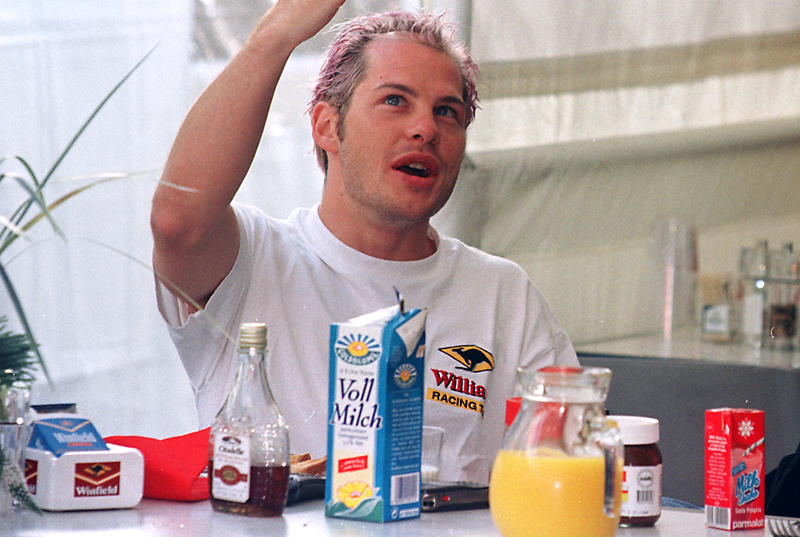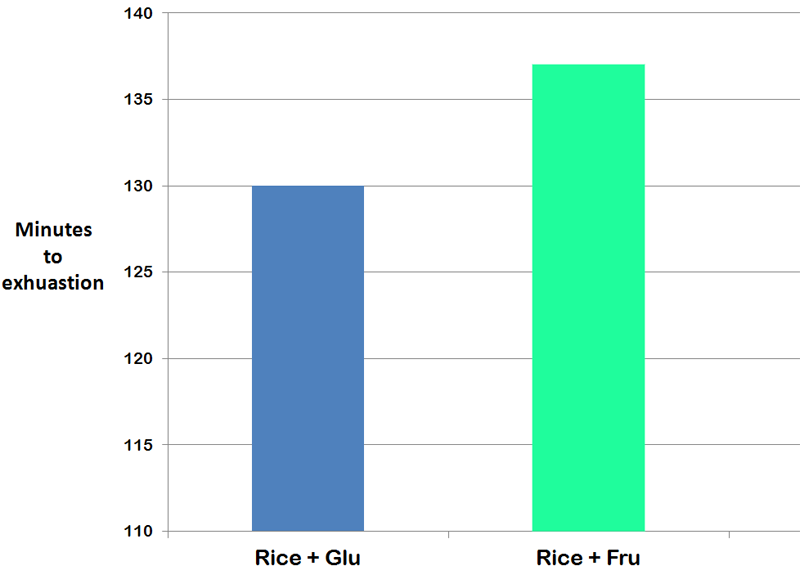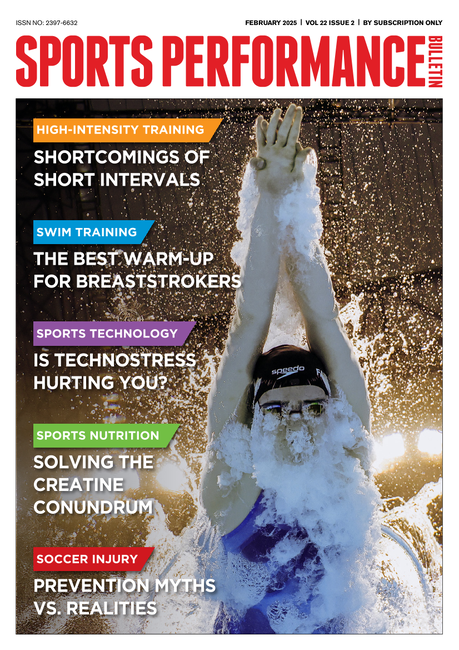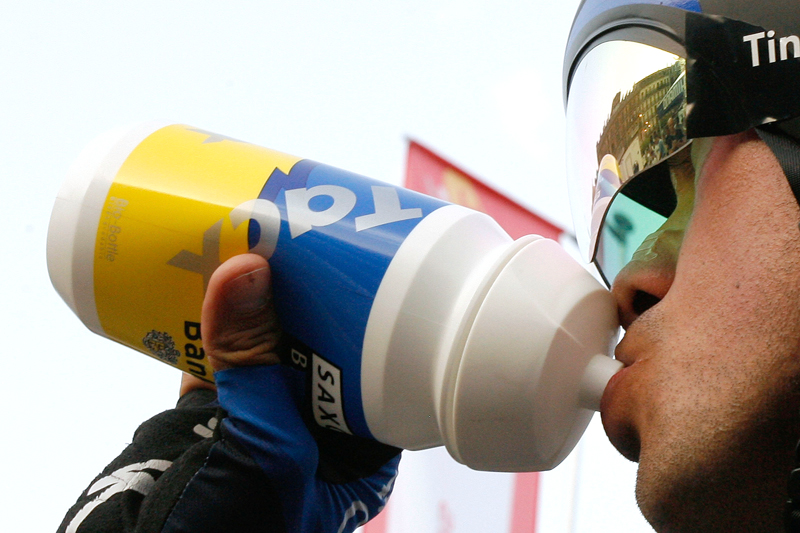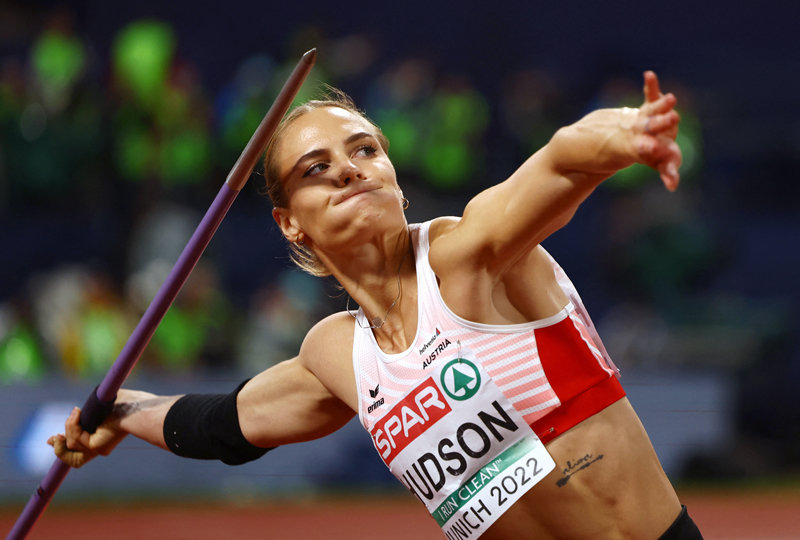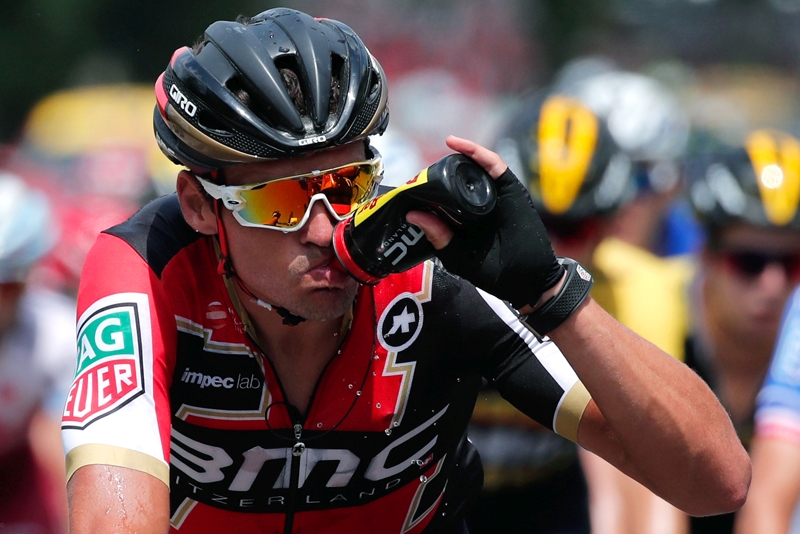You are viewing 1 of your 1 free articles. For unlimited access take a risk-free trial
Endurance performance: enjoying the fruits of breakfast!
Can a breakfast high in fructose improve subsequent endurance performance? Andrew Sheaff reports on some recent research
All serious endurance athletes are (or should be!) aware of the value of strategically planned carbohydrate nutrition. Ever since the emergence of carbohydrate feeding as a tool for improving performance, athletes and coaches have been searching for an edge to improve performance. Initially, sports scientists focused on glucose-based drinks during training – drinks that logically supplied the sugar used by the body to provide energy. It turns out that more glucose was better, at least initially. However, once the amount of glucose provided during exercise exceeded 60-70 grams per hour, it no longer seemed to improve performance.
The fructose factor
Attention turned to other carbohydrate types- namely fructose - to see if combining two carbohydrate types could have an additive effect on performance. This hypothesis turned out to be correct; endurance performance could be improved if athletes co-ingested both glucose and fructose during exercise, because combining the two together provided two separate routes for those sugars to be absorbed into the bloodstream (see this article).
Following this insight, researchers began to wonder if glycogen stores could be influenced by carbohydrate type. As glycogen stores can positively impact performance, and glucose provision can only facilitate glycogen synthesis up to a certain point, it was hypothesized that providing fructose and glucose could enhance glycogen synthesis. While it turns out that combining carbohydrate does not enhance muscle glycogen synthesis, it DOES enhance liver glycogen synthesis.
This is particularly relevant to the new research we are going to look at. Liver glycogen content at the start of exercise is associated with exercise performance, and liver glycogen is often partially depleted overnight, potentially limiting exercise performance during the subsequent morning session. As many endurance athletes train relatively early in the day, improving liver glycogen status can positively impact performance.
While ensuring liver glycogen is restored following exercise (by consuming carbohydrate), some glycogen will inevitably be lost overnight. The question then becomes what the best strategy is to begin to top up liver glycogen stores upon waking to enhance performance in a subsequent exercise bout? Based upon the evidence to date, it’s reasonable to suppose that providing a breakfast supplying plenty of glucose and fructose may do just that. Fortunately, a group of curious researchers recently decided to find out if this idea can produce practical results!
The study
A group of researchers recruited eight elite cyclists to participate in their experiment(1). Importantly, the subjects were highly trained, possessing a VO2max (maximum oxygen uptake) of 62.1ml/kg/min. This is relevant because highly trained athletes metabolize carbohydrate and fat differently than untrained subjects, and the results are more likely to apply to the focused endurance athlete if the testing is also performed in trained subjects.
Prior to the testing day, the subjects performed various nutritional and exercise standardization protocols to minimize the influence of external factors, which could skew the results. All the cyclists underwent two morning cycling trials on two separate occasions. On both mornings, they consumed a breakfast that included approximately two grams of carbohydrate per kilogram of body weight, with 2/3rd of the carbohydrate coming from rice, and 1/3rd coming from carbohydrate powder. However, the trials (performed in a random order) differed:
- In one trial, that the carbohydrate powder they consumed consisted of glucose.
- In the other trial, the carbohydrate powder consisted of fructose.
Following a 2-hour resting period, the subjects then cycled at the individually determined 1st ventilatory threshold (the intensity at which exercise begins to produce a significant uptick in breathing rate) until for as long as possible until they couldn’t continue. Importantly, all subjects performed both tests, with a 7-14 day period in between tests.
While the main testing outcome was how long the subject could cycle until failure, the researchers regularly tested blood glucose and lactate, the rating of perceived exertion, and heart rate. In addition, they examined oxygen and carbon dioxide production, as well carbohydrate and fat oxidation. If there was difference in performance, the researchers wanted to explain why it happened.
The findings
Once the data was compiled, the results were clear. The rice plus fructose powder condition was able to sustain their performance for significantly longer than the rice plus glucose powder condition (137.03 minutes versus 130.06 minutes – see figure 1). Over a 2-hour time period, a 7-minute improvement is substantial, particularly when all the what was required was a slight shift in the nutritional approach two hours prior to the test.
What was interesting was that there were no differences blood glucose, blood lactate, rating of perceived exertion, or heart rate between the trials. Furthermore, there were no differences in oxygen or carbon dioxide production, or carbohydrate and fat oxidation. However, there was more total carbohydrate oxidized in the fructose group, with more fat oxidized in the glucose group, indicating that the fructose group had better access to carbohydrate, or better ability to utilize carbohydrate.
Figure 1: Time to exhaustion following rice + glucose or rice + fructose breakfast
Blue bar = rice plus glucose powder; green bar = rice plus added fructose powder.
Putting it into practice
If you’re planning on putting in some hard work during a training session or a competition, what you eat for breakfast can have a significant impact. Rather than wolfing down the standard, glucose-rich fair of cereal, bread, or pasta, consider switching in some carbohydrate sources that contain a significant dose of fructose. Fortunately, it doesn’t require much ingenuity or effort as fructose is readily available in the form of fruit or fruit juice. Indeed, apple juice has more than twice as much fructose as glucose, and it packs quite a concentrated carbohydrate punch. Simply find a combination of foods that includes both glucose and fructose, that you can tolerate and enjoy. The study used glucose and fructose in a ratio of 2:1 (the same ratio that works for in-exercise feeding), and this can be a great starting point to determine what suits your performance and your gut.
Beyond the specifics of breakfast nutrition, this study hints at the notion that it’s valuable to consider the type of carbohydrates that are consumed at all points in the day. While it’s generally accepted that combining glucose and fructose feeding during training and competition can enhance performance, similar benefits may occur when carbohydrate types are combined at other times of the day. Indeed, it’s also been shown that the combination of glucose and fructose increases liver glycogen following training more than glucose alone(2). At a minimum, if you’re planning on some serious training later in the day, taking on multiple carbohydrate types well ahead of your training may well produce a positive impact on performance. All you have to do is slightly alter your food choices, and you’ll be doing what you can to optimize your training performance!
References
- Int J Sport Nutr Exerc Metab. 2022 Aug 30;1-7.
- J Physiol. 2019 Jul;597(14):3549-3560.
Related Files
Newsletter Sign Up
Testimonials
Dr. Alexandra Fandetti-Robin, Back & Body Chiropractic
Elspeth Cowell MSCh DpodM SRCh HCPC reg
William Hunter, Nuffield Health
Newsletter Sign Up
Coaches Testimonials
Dr. Alexandra Fandetti-Robin, Back & Body Chiropractic
Elspeth Cowell MSCh DpodM SRCh HCPC reg
William Hunter, Nuffield Health
Keep up with latest sports science research and apply it to maximize performance
Today you have the chance to join a group of athletes, and sports coaches/trainers who all have something special in common...
They use the latest research to improve performance for themselves and their clients - both athletes and sports teams - with help from global specialists in the fields of sports science, sports medicine and sports psychology.
They do this by reading Sports Performance Bulletin, an easy-to-digest but serious-minded journal dedicated to high performance sports. SPB offers a wealth of information and insight into the latest research, in an easily-accessible and understood format, along with a wealth of practical recommendations.
*includes 3 coaching manuals
Get Inspired
All the latest techniques and approaches
Sports Performance Bulletin helps dedicated endurance athletes improve their performance. Sense-checking the latest sports science research, and sourcing evidence and case studies to support findings, Sports Performance Bulletin turns proven insights into easily digestible practical advice. Supporting athletes, coaches and professionals who wish to ensure their guidance and programmes are kept right up to date and based on credible science.
